Youths of today stand at a pivotal moment in history: Singapore's Health Minister Ong Ye Kung in Beijing
Singapore's Health Minister Ong Ye Kung delivered the keynote speech entitled "Youths - Bridge Between East and West, Pivot Between Present and Future" at the Lianhe Zaobao Singapore-China Forum 2023 held in Beijing on 21 November. He spoke about issues affecting the youths of today - whether in China or Singapore - noting that while they have big issues to tackle, they still have much to look forward to in this pivotal moment in history. This is the English version of his keynote address delivered in Mandarin.
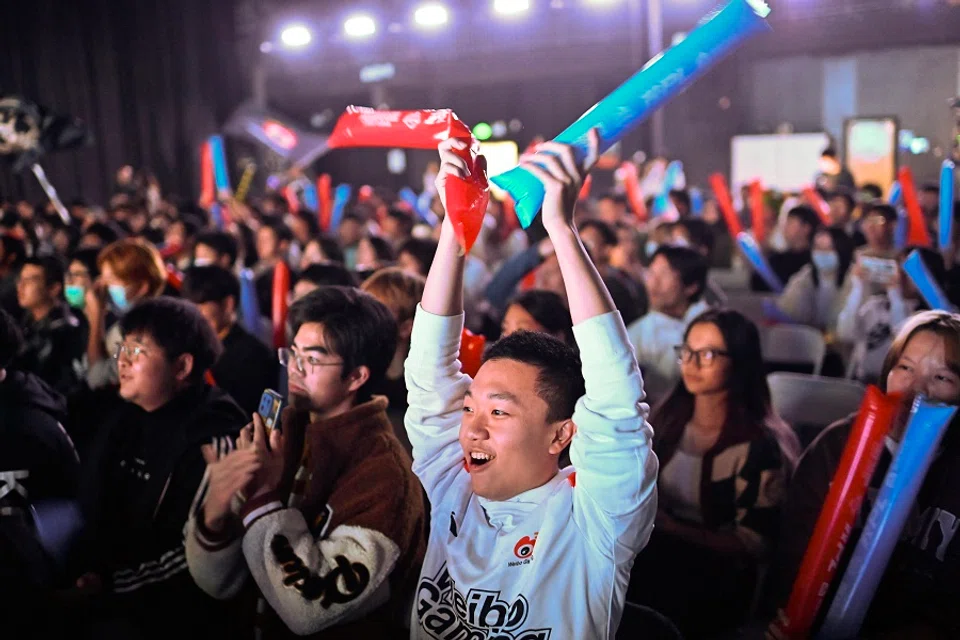
Fellow Cabinet member Mr Eric Chua, Zaobao editor-in-chief Ms Lee Huay Leng, ladies and gentlemen, fellow friends, good morning.
Today's topic is an important topic to discuss, and gives me a chance to think about my younger days.
Much has been said about the youths of today, both in China and Singapore, in attempts to identify this generation's defining traits.
They are digital natives and regardless of where they live, they are connected and aware of what's going on in the world. Hence, they care about wider issues that go beyond national boundaries, in topics such as mental health, climate change and social inequalities.
Notwithstanding, in Asia, I think their central concerns still has to do with the practical things in life.
Youths are keenly aware of the challenges before them. They know it is a much more competitive world. They need to compete for jobs and opportunities. In Singapore, youths are most concerned about increasing costs of living, and when they would be able to own their first property and settle down.
In China, I believe the current preoccupation amongst youths must be jobs. China continues to produce close to ten million graduates a year. It is a big injection of talent and a significant advantage, but that also comes with its own challenges.
... youths of both China and Singapore have a lot to look forward to in this pivotal moment in history, provided leadership pursues the right policies, and our youths possess the attributes fit for the times.
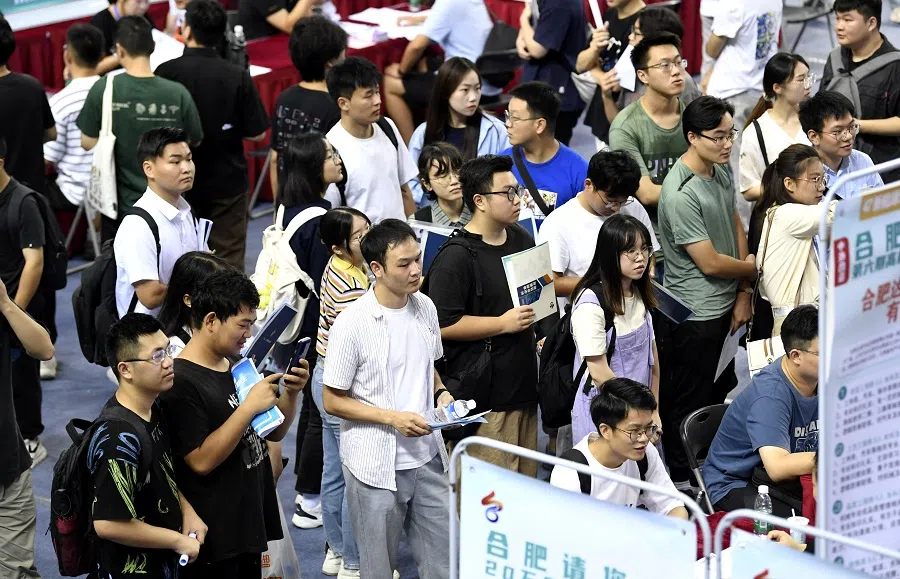
The economy is going through a slow patch post-Covid-pandemic and youth unemployment has become a challenge. Unemployment is a near-term worry, and the longer-term concern is whether they would eventually be able to afford a house. This drives the intense competition and "内卷" (neijuan involution). On the opposite end of the spectrum, some youths decide to just lie flat "躺平" (tangping lie flat).
Today, I will argue that the youths of both China and Singapore have a lot to look forward to in this pivotal moment in history, provided leadership pursues the right policies, and our youths possess the attributes fit for the times. This is a very significant moment for youths historically, and they need to seize the moment.
Youths at three significant junctures of modern history
There have been significant moments like these in history and in different countries. Let me cite three examples.
Rebuilding the US from the rubble of war
First, the US. The decades following World War II is a special time in the modern history of America. The allies won, peace ensued, Europe was weakened, colonialism was on the retreat. The US, with a young population, was faced with a colossal task to turn a wartime economy into a peacetime economy, help rebuild Europe and establish a new and stable world order. Tensions with the Soviet Union started to build up. Domestically, the American society was struggling with the civil rights movement.
The country and its people stepped forth to tackle these challenges. A major realisation in the US at that time was the strategic advantage of technological advancement, and that inventing the atomic bomb ahead of others was decisive in American victory. The US decided to invest heavily in research and development, centring the efforts around universities, and welcoming talent from all over the world.
In parallel it invested in education, and through the GI Bill, supported the education of veterans, who comprised mostly of young people returning from war. A whole generation of youths got educated, of whom many went into the field of science and technology, powered power the industrial base and help maintain the technological edge of the US for decades.
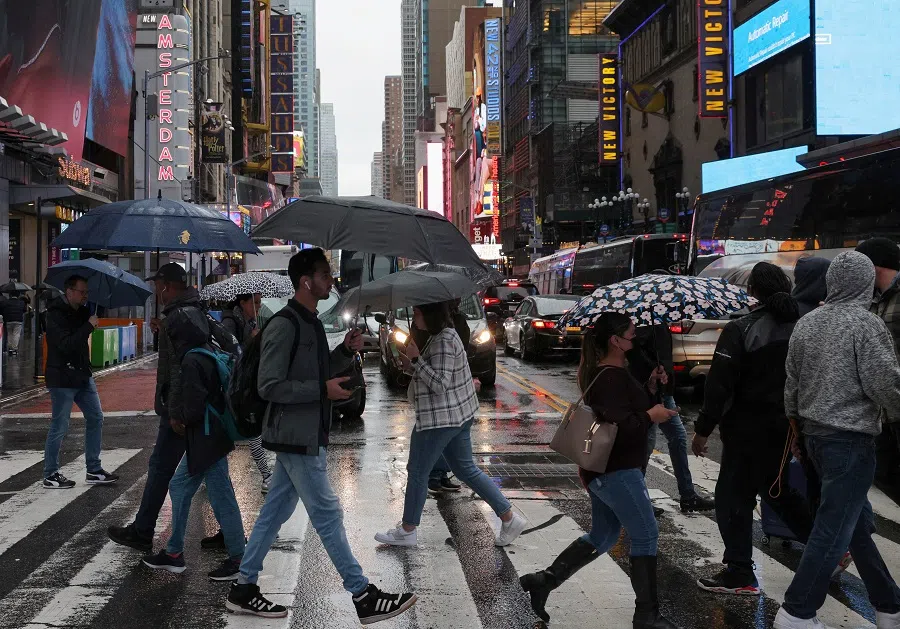
On the social front, the sense of optimism spurred many young people to get married and have children, leading to a demographic dividend lasting decades, and the ageing baby boomer generation now.
Congress also passed the Civil Rights Act in 1964 and Voting Rights Act in 1965 in America's bid towards a more fair and just society.
Thirty years later, in 1975, America's GDP had multiplied more than eight times compared to before the war. This growth was driven by local talent, and America's foreign talent policies. By then, American had sent men to the moon and returned them safely. Income disparity and discrimination continue to be perennial issues in America, but it is a society that acknowledges its own problems and try to deal with it. America became the undisputed superpower of the world.
Bringing Singapore from third to first world
Second, Singapore. Singapore had independence thrusted on us in 1965. Our population then was just under 1.9 million, with over 80% aged 35 and below.
Many felt that Singapore could not survive on its own without a hinterland. We were small and vulnerable with no natural resources. Labour dispute and strikes were commonplace, bringing significant investments risk to businesses considering the region.
The generation of youths was facing the challenge of their lifetimes. Fortunately, we had strong, visionary youths who stepped up to the challenge. These leaders, such as Mr Lee Kuan Yew, Dr Goh Keng Swee, and Mr S. Rajaratnam set forth strong foundations, bringing Singapore to where she is today.
None of this would have been possible if the generation of youths then had not made personal sacrifices and worked towards the bigger picture.
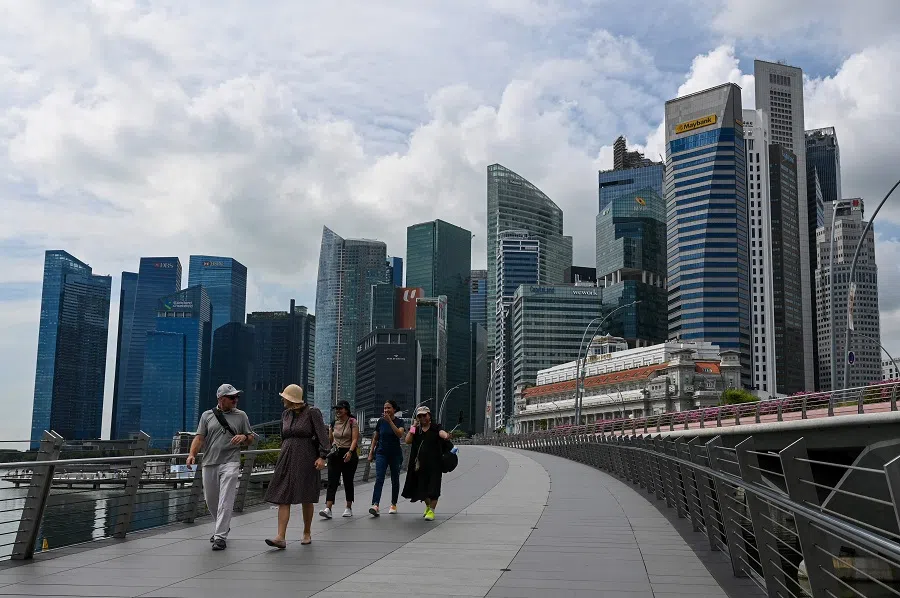
We implemented the right policies. We invested in education, build public housing and infrastructure. Villagers, mostly young families, had to give up their farmlands, which was acquired by Government and redeveloped for housing, factories, schools etc.
There were political riots in unions. Our leaders spent considerable efforts and time, consolidated the labour unions, persuaded the large youthful workforce to lay down their pickets, and work with employers to create a conducive business environment. When businesses do well the fruits will be shared with workers. It was a hard battle for the hearts and minds of the workers, but progressively industrial harmony was established.
Because of these efforts Singapore became an attractive place for foreign investors. Jobs and opportunities were created, and the economy grew. Our founding leaders and the generation of pioneer Singaporeans, brought Singapore from third to first world within their lifetimes.
None of this would have been possible if the generation of youths then had not made personal sacrifices and worked towards the bigger picture.
Transforming China through reform and opening up
Third, China. In the 1970s, China's economy was in a difficult period of stagnation. Then came a major shift in 1978 - reform and opening up of China. The audience today knows this story well, but I want to underscore the scale and complexity of the task.
China had a population of close to 1 billion. And to progressively transform the economy from a centrally planned to a more market-based one, is an unimaginable feat.
Significant moves were made to establish Special Economic Zones, decentralise economic decision-making, and leverage the immense market of China to draw in investments. But there are significant consequences, such as having to deal with social inequalities and the various ills of a more open economy. Hence the call to allow a proportion of people to become wealthier first, and use that, to bring the rest of the nation towards common prosperity.
We often say that youths are the future. They are not only the future, but also the present, and the architects of the world that is yet to come.
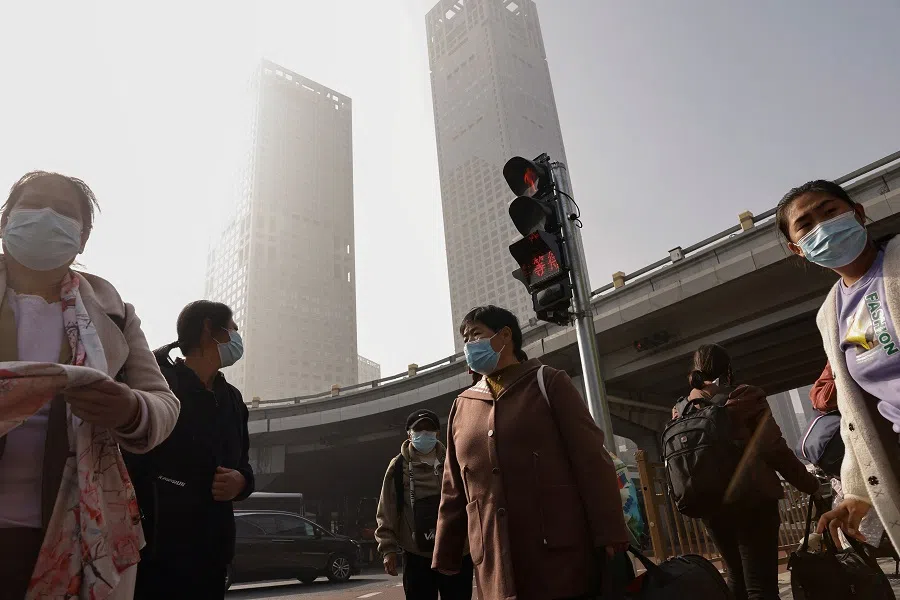
This transition towards a market economy provided opportunities for youths of that time. Youths then had with access to higher education, connectedness with the outside world, leading to a period of creativity and cultural expression.
This created a ripe breeding ground for when the foreign and local investments and corporations came, taking root easily, and growing tremendously in the past 40 years.
Of note is China's growth of private-owned enterprises, the first of which started in 1984. This wave of entrepreneurism has grown to over 25 million private-owned enterprises in China today. Many of which have made significant global presence - Lenovo and Haier, who have been around since the start. This has been made possible with youths then, with their foresight and courage, through generations of youths, to reach today's scale.
Eventually, in 2001, China joined the WTO and was officially part of the world trading community.
China has since brought hundreds of millions of people out of poverty. In 2021, China achieved its first centenary goal of "全面小康" (quan mian xiao kang a moderately prosperous society in all respects). The transformation story continues today.
This is another one of those junctures
We often say that youths are the future. They are not only the future, but also the present, and the architects of the world that is yet to come. It is especially relevant at certain junctures of history, when there are tectonic shifts and fates of people are turning. I think we are at another one of those junctures.
Youths of today may not believe this, because life is uncertain, competition is tough, and dreams seem hard to achieve. For one, the China economy has slowed down.
Some economists compared the current situation to Japan in the 1980's, when its property bubble burst, and the population was ageing. They postulated if China would also go through prolonged deflation and slowdown like Japan.
There is much more headroom for China to continue its growth path, once it gets over its current slump.
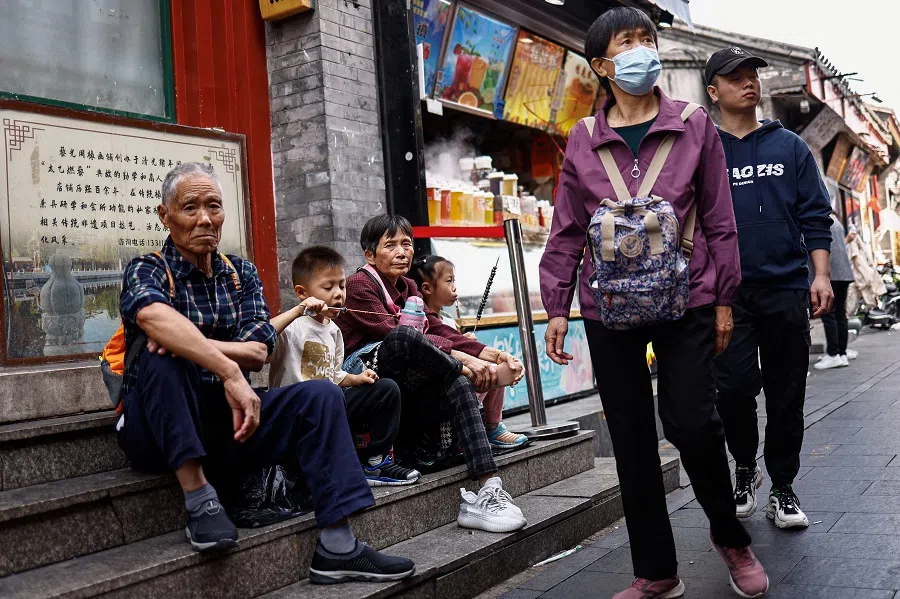
The circumstances are very different. Unlike Japan in the 1980's where its per capita income is higher than the US, China per capita income today is only about one third that of the US. There is much more headroom for China to continue its growth path, once it gets over its current slump.
Ageing, another reason that is giving rise to pessimism about China. But outside of Africa, most parts of the world are ageing. For example, while China is culturally and historically older than Singapore, from a population structure angle, Singapore is about ten years ahead of China in ageing, and many European countries like Germany is in turn twenty years ahead of Singapore.
It is a major complex social challenge but we cannot always depend on an ever expanding workforce to drive growth. Neither does it necessarily spell the end of vibrancy and dynamism.
Older people, especially if well-educated and healthy, can continue to contribute significantly. Technology and productivity improvements reduce the reliance on manpower. Hence, countries that have been facing an ageing society for many years, such as Germany, France and Netherlands continue to be growing economies.
New opportunities have come. The world is still in the midst of a technological revolution, with the advent of AI and digitalisation, electric vehicles and precision medicine. China has been patiently invested in these areas, educating its population, developing its talent and industries.
Usage of digital payment and e-commerce are the most ubiquitous and more widespread here. Its large domestic market will continue to give industry players a major springboard to achieve scale and expand their businesses.
The challenge is that the transition from here and now to the possible future is going to be unnerving and uncertain. But that was what early generations of youths cited in my examples had to go through.
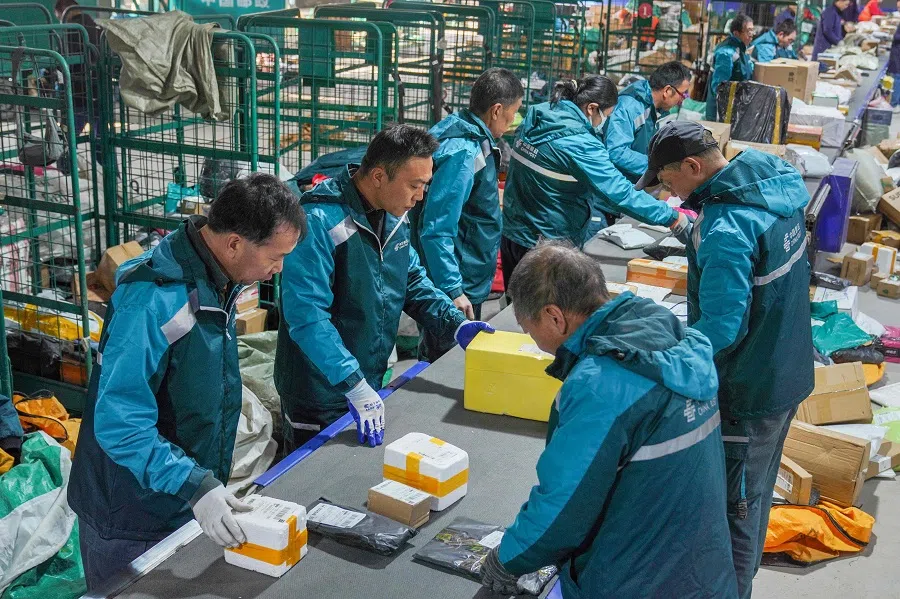
If China successfully weans itself off the over-reliance on the real estate sector, leverage domestic consumption, invest in technology and continues its strategy to reform and open up, there is no reason to be downcast about is economic future. It will likely be the largest economy in the world by the end of this decade, and GDP per capita will come close to that of a developed country.
Barring any geopolitical mishaps, and provided we can maintain peace in the world, we will experience a new reality in the history of humanity.
It will be a globalised, connected and multipolar world, with US still likely the leading superpower in the world, China as the other key strategic and economic anchor, and other major players like the European Union, India and Japan. The global economic center of gravity will shift towards Asia.
Within Asia, economies will be tightly integrated, where there can be vibrant economic, cultural and talent exchanges, and linkages outside of Asia.
It is a new, promising world, especially in Asia. This is my vision and hope for Asia.
Attributes to shape a better future
The challenge is that the transition from here and now to the possible future is going to be unnerving and uncertain. But that was what early generations of youths cited in my examples had to go through. The future is for youths to make, and to maximise your chance, you need the right attributes fit for the times.
Curiosity and an appetite to learn
First, more so than before, youths must have a strong sense of curiosity and have the appetite to learn continuously. Technology is changing rapidly, which in turns disrupts industry, and alters the way work is organised.
The industrial revolution was a blue-collar revolution, as factory automation replaced manpower. Today, it is a white-collar revolution, where Artificial Intelligence replace office work.
Skills which AI has yet master, like sincerity, empathy, care and kindness, will be more important. These are not skills, these are values, upbringing that are key attributes of human beings.
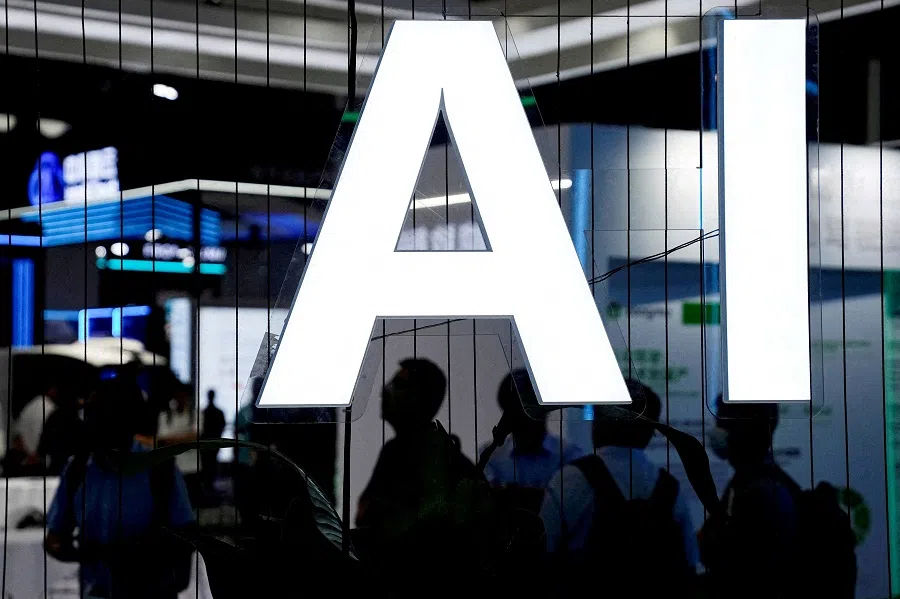
To inoculate ourselves, we have to adapt and learn. Not just in schools, but throughout our lifetime.
In the digital age, not everyone needs to be a coder or software developer, in fact AI can code for us now. But we need to be able to use AI, to enhance our own capability and productivity. As the saying goes, employers of the future will not be choosing between human and AI, but a human who can use AI versus one who cannot.
In addition, we need to learn to be human. If one works like a robot he will be replaced by one which is smarter than him. Skills which AI has yet master, like sincerity, empathy, care and kindness, will be more important. These are not skills, these are values, upbringing that are key attributes of human beings.
As a politician that has to explain policies to people and help them with their problems, I feel this keenly, and I know I need to master these skills throughout my life.
Holding on to cultural identity while embracing the world
Second, we all need to embrace the world, but steadfast in holding on to our own cultural identity.
The world is already globalised and we are subject to all kinds of foreign influence. It is a fact of life.
As Mr Deng Xiaoping said, "If you close the window, you get no fresh air, and also no flies. But if you open the window, fresh air comes in and also some flies". Today, the window is opened by default. And even if we wanted to close it, it is not possible now.
Other than fresh air, which is good, and flies, which are bad, many other things which are neither obviously good nor bad come in. We experience such influences in our daily lives. In Singapore, the food scene has evolved significantly. We are getting more exotic European and Middle Eastern cuisines. When I was growing up, southern Chinese food dominated the Chinse food scene, but now many Singaporeans like mala and dumplings.
Singapore is a great example of a cultural jigsaw. To outside influences, we add our own cultural spice, and make them our own.
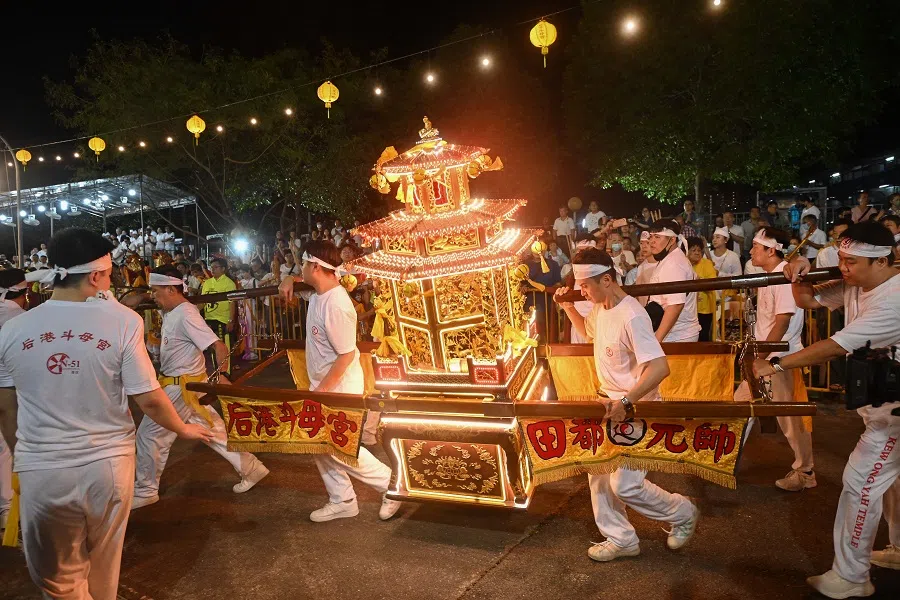
But as foreign cultures come to Singapore, they are also influenced and shaped by local cultures. For example, Taoism is practiced differently in Singapore and Southeast Asia, as opposed to China. The biggest Taoist festival in parts of Southeast Asia and Singapore is probably the Nine Emperor Gods Festival. It celebrates the beginning on the eve of the ninth lunar month. There are many theories how the festival started in Southeast Asia, but many believed the nine emperors were subordinates of Zheng Cheng Gong, and heroes in overthrowing the Qing dynasty.
Another interesting observation is the celebration of Halloween. It has its roots in the ancient Celtic culture, where people would light bonfires and wear costume to ward off ghosts.
When it went to America, it became All Saints Day with American characteristics, with pumpkins, children costumes and "trick or treat".
In Asia, it is Halloween with Asian characteristics. In Singapore, people will set up elaborate haunted houses to scare each other. In the original Celtic culture, they wear costumes to scare of ghosts, but in Singapore, we dress up as ghosts, to scare off other people. In major cities in China, it has become a big street festival, where people would dress up in costumes, from Batman to Covid-19 hazmat suits to Sun Wu Kong and Lao Gan Ma chilli bottle, to have a good time. For youths, this is purely entertainment.
Our identities are constantly shaped by external influences. But it is an exchange and not a one-way traffic. American and Europe are just as influenced by Asian cultures as we are by Western cultures.
Singapore is a great example of a cultural jigsaw. To outside influences, we add our own cultural spice, and make them our own. But beyond festival, food, fashion and popular cultures, we are also constantly adapting ideas, technology and best practices.
The truth is that we are probably living in the most comfortable time that has existed in history.
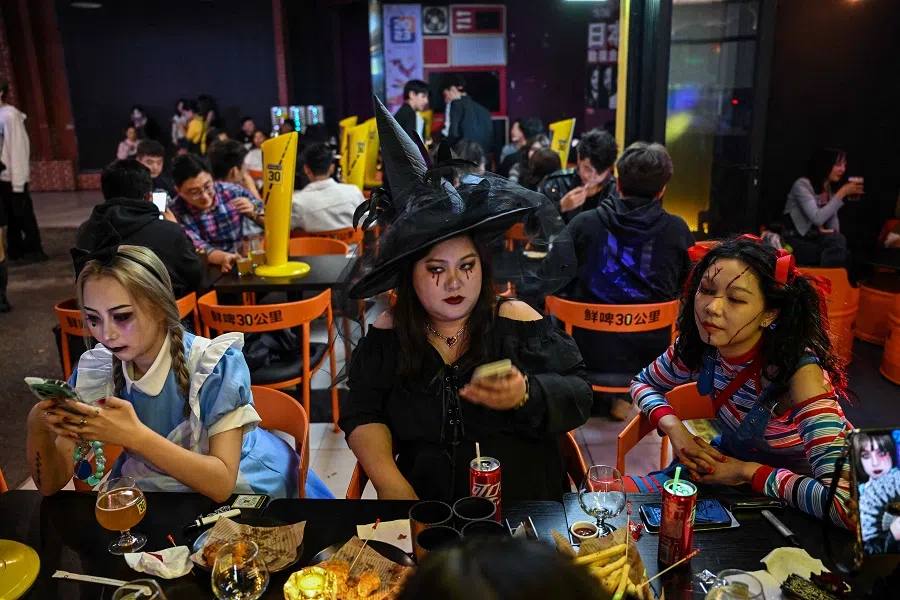
The oldest and rich cultures of the world - Chinese, Indian, Arabian, Indonesian - were never static. They absorbed and assimilated foreign influences and own them. So I say, in this day and age, by embracing and processing foreign cultural influences, we keep our local cultures rich and dynamic, our ideas fresh and forward looking, and our people confident and secure.
Fulfilling the imperatives of a generation
Third, fulfil the imperatives of your generation. Every generation has their own mission, suited to their times. I gave some examples earlier - young Americans who had to rebuild from the rubbles of war, pioneer Singaporeans who had to make a small nation stood on its own two feet, generations of young Chinese who established the republic, Communist Party rule and transformation to a market economy.
To fulfil the imperatives of a generation, we had to take a pragmatic rather than ideological approach, learn from others, be willing to experiment, monitor and deliver results. We need to collaborate with other countries and forge global action to tackle issues like climate change.
The truth is that we are probably living in the most comfortable time that has existed in history. Global poverty declined substantially over the last generation. There is global health progress, information technology and network coverage spans all corners of the world, and people are living with modern comforts.
If we think about it carefully, youths are actually inundated with choices. Want to buy something? There are many brands and designs to choose from on Taobao. What to study? There are many pathways and subjects to take. When we are ready to work, the job we aspire for may be elusive, but there are many less attractive choices.
Being young they always overshoot their ambition and make older people like me think they are unrealistic. But it is precisely because of that quality that society can settle into a new equilibrium.
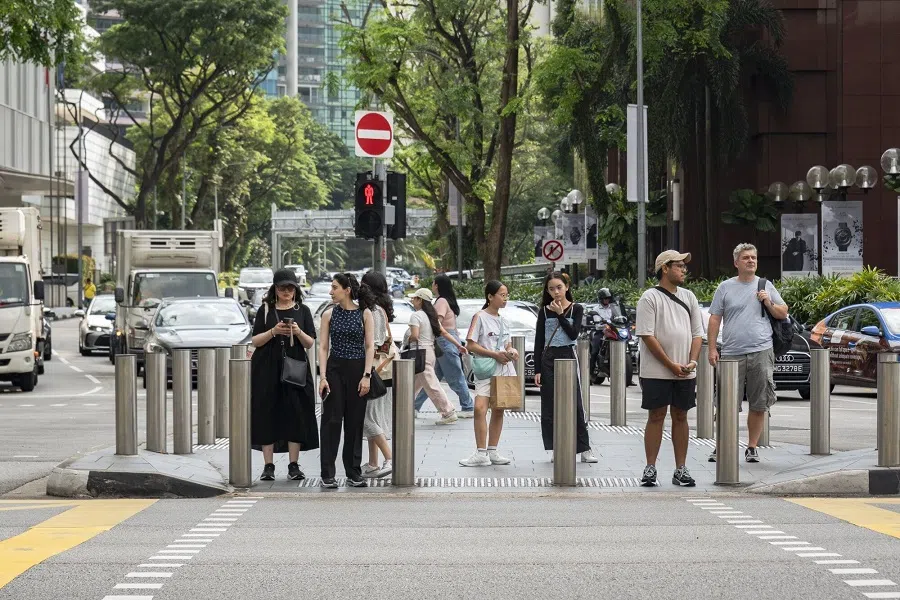
The key is not to be paralysed by choice. Take the first step and start somewhere. It is natural for us to value choices and the ability to choose. But it is often the decisions we make with the hand we are dealt with that is the most important, and not waiting to make the perfect choice which may land us with decision-making paralysis.
Gitanjali Rao, a young scientist and teenage inventor has built on her passion for science to develop innovative solutions to address a broad range of issues from water contamination and cyberbullying. She brings along a clear message to other young people: "Don't try to fix every problem, just focus on the one that excites you."
Another factor that could be debilitating could be the uncertain future that youths feel they face today. There is significant risk of instability, geopolitical tensions and flash points in the world. Indeed, it is difficult to decide on a path when faced with an onslaught of choices and evolving situations. But I would like to make my case today that we are on the cusp of the next big thing, and youths have every reason to be excited.
Hence, in Singapore, we encourage young Singaporeans to do their best, pursue their passions. If they have yet to discover their passion, then make the best of what they have before us. Very importantly, continue to strengthen our bilingual advantage. Where possible, take up an internship or attachment in the region, learn about other cultures. Singapore has a special arrangement with China, called YES (Youth Intern Exchange Scheme), where our students can take up internships lasting at least six months in each other's countries. I hope youths from both countries will make full use of it.
Pivot of present and future
The theme of today's forum presents youth as a bridge between East and West. Just as important is that youths represent the inflexion point between the present and future, at a time when the world is undergoing a change unprecedented in the history of humankind. That is when youths and the leaders of the day need to work together to create a better future.
Youths can play these special roles, because by nature youths push the boundaries of societies and the world. Being young they always overshoot their ambition and make older people like me think they are unrealistic. But it is precisely because of that quality that society can settle into a new equilibrium.
...each generation of youth has a special mission in the history of our country and humankind and needs to step forward to fulfil it.
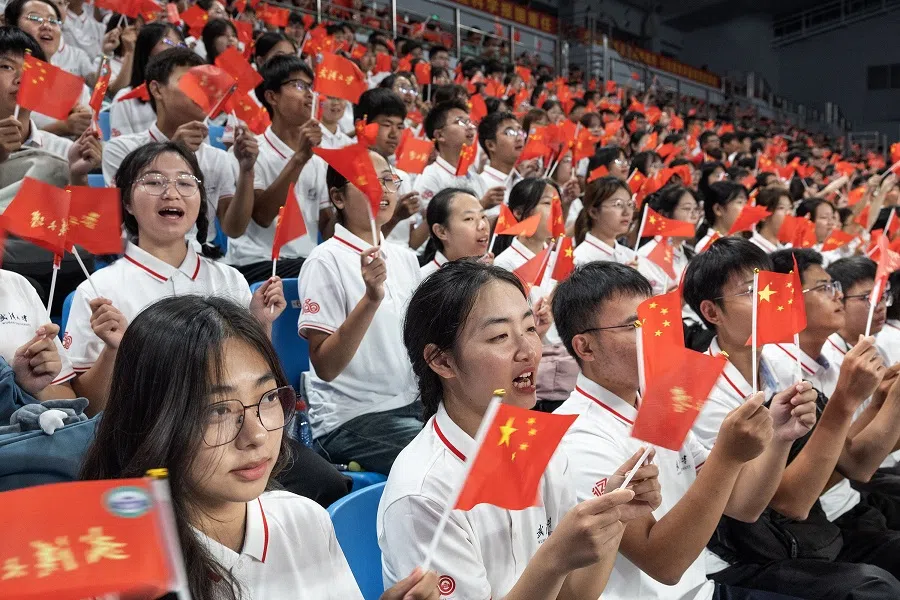
The youths of today must believe that your time has come, and that each generation of youth has a special mission in the history of our country and humankind and needs to step forward to fulfil it.
Although I would no longer be categorised as a "youth", I am still young at heart. And as a fellow "youth", I'd like to end my sharing with the following - we need to be realistic but we must also not lose our sense of optimism, our courage to embrace the world, and our belief and drive to make a difference and influence events. Thank you.
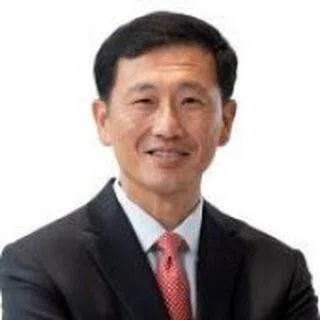


![[Big read] When the Arctic opens, what happens to Singapore?](https://cassette.sphdigital.com.sg/image/thinkchina/da65edebca34645c711c55e83e9877109b3c53847ebb1305573974651df1d13a)
![[Video] George Yeo: America’s deep pain — and why China won’t colonise](https://cassette.sphdigital.com.sg/image/thinkchina/15083e45d96c12390bdea6af2daf19fd9fcd875aa44a0f92796f34e3dad561cc)
